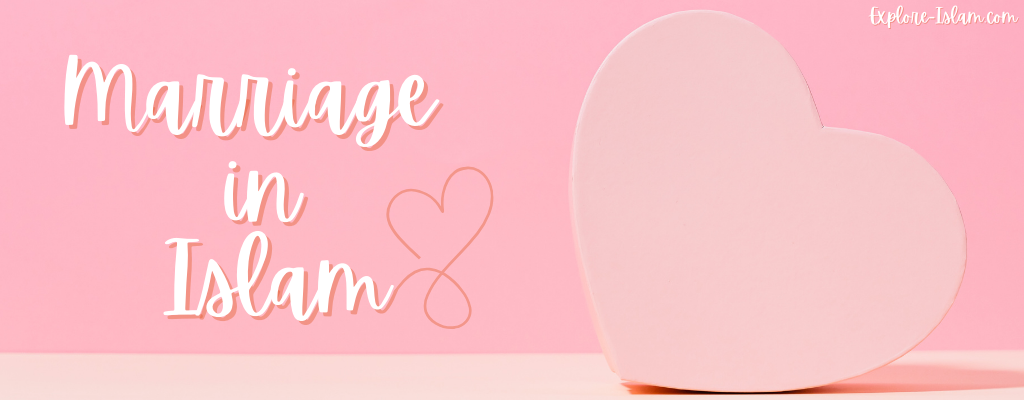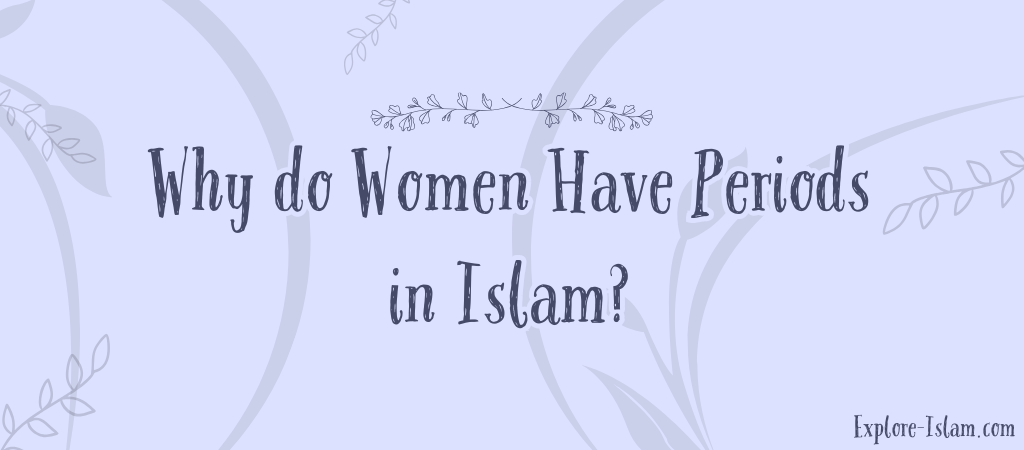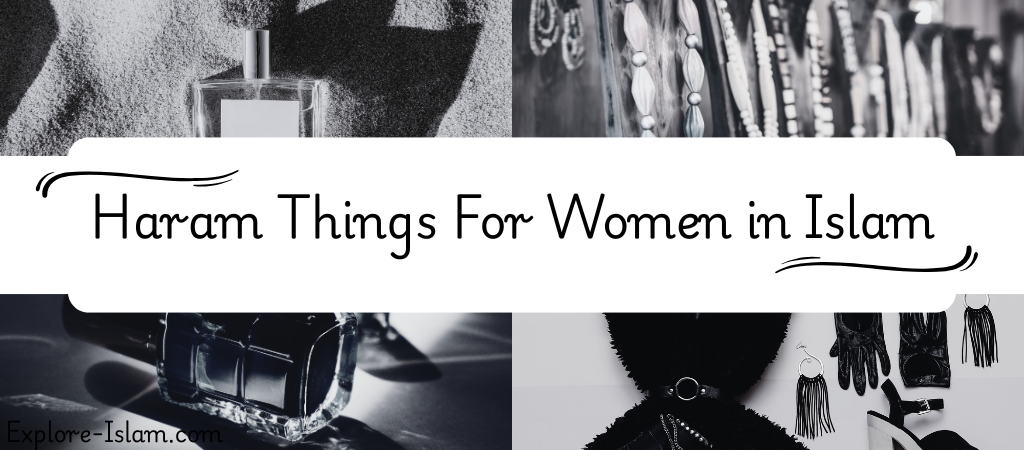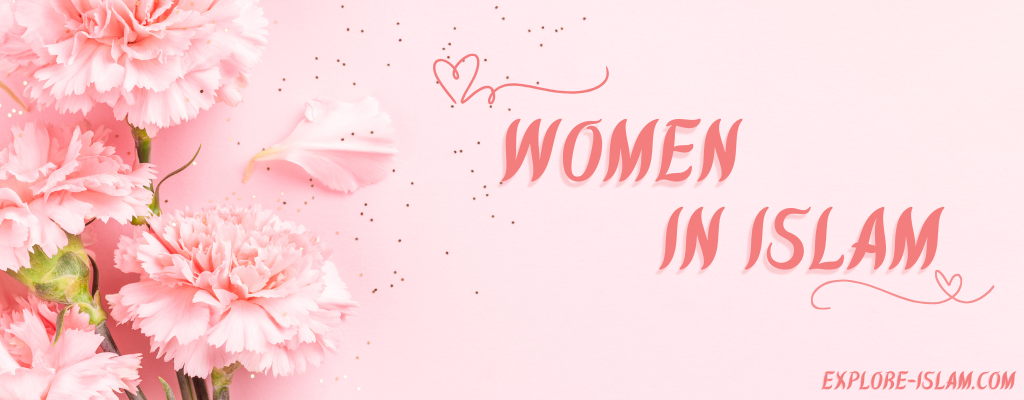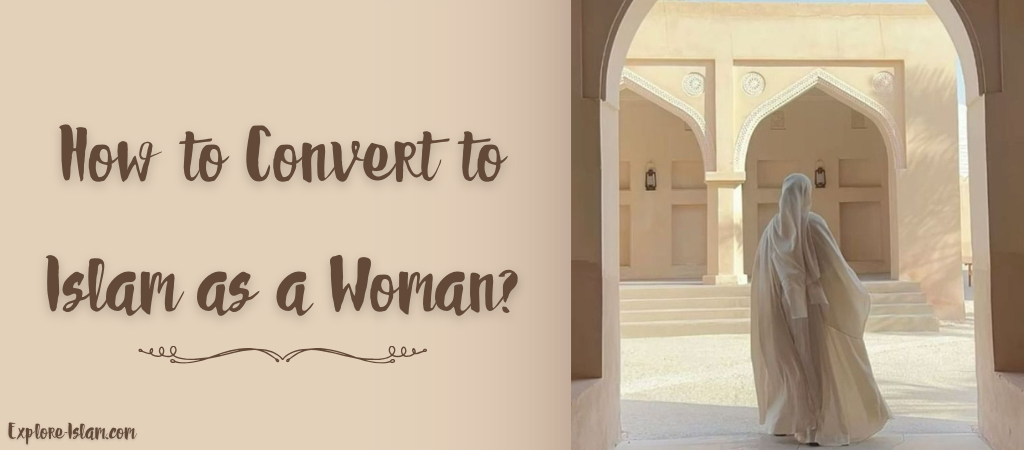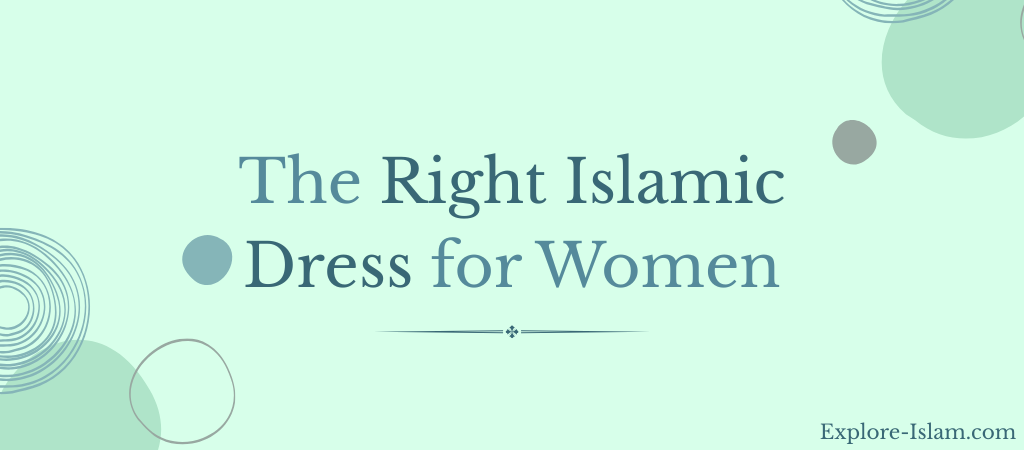Marriage in Islam is the main component of the Islamic community. God created us and in our nature, once a man and a woman mature, they seek to connect with one another. This physiological and psychological need is primarily for the sake of humanity as a whole. God also has guided us to the best way to regulate this instinct.
So that we can avoid all the bad consequences of that relationship, and reap its benefits. God revealed to us Islam, and in it, He sent rules and regulations regarding everything in life, and in great part “Marriage”.
Today we will learn more about what marriage is in Islam. And the Rights of men and women in Islamic marriage. Conditions of marriage in Islam. Steps and how to consummate the marriage in Islam. what the purpose and importance of marriage in Islam are. Types of marriage in Islam: lawful and unlawful. And finally, when is marriage a must and when not. So, let’s dive right in!
Here we will learn the following:
- What is Marriage in Islam?
- Rights of Man and Women in Islamic marriage
- Common rights for both Muslim Man and Woman in Marriage
- Conditions of Marriage in Islam
- Marriage in Islam steps
- Why is marriage so important in Islam?
- The Purpose of marriage in Islam
- Types of marriages in Islam
- Is Marriage a Must In Islam?
- References
What is Marriage in Islam?
Marriage in Islam is a “contract”. It’s a special type of contract that’s held exclusively between a man and a woman, by which both the man and the woman get certain rights and have to fulfill certain duties. Aside from the aspect of duties and rights, marriage represents a deep connection and bond between the spouses. Then it becomes the core for building a healthy family built on mutual compassion, respect, and partnership.
يَـٰٓأَيُّهَا ٱلَّذِينَ ءَامَنُوٓا۟ أَوْفُوا۟ بِٱلْعُقُودِ
Quran 5:1
O you who have believed, fulfill the contracts.
Read also:
Rights of Men and Women in Islamic marriage
Are you asking: What are the rights of men and women that Islamic marriage safeguards? Here are a detailed discussion
What are the Rights of a woman in Islam upon her husband?
- Dowry: it is something of monetary value that the man has to give the woman. The exact value or thing is left to both parties to agree on. The man can’t take any of it from her without her being content.
- Providing for her feeding, clothing, and a place to live and all needs related to her dailly life. (money related)
- Not neglecting her: Man can’t travel and leave her alone for more than four months, and at least sleep in her house once every four days when not traveling.
What are the Rights of a man in Islam upon his wife?
- Leadership: Leadership has been given to the man. He has to be up to the responsibility, and she has to follow his lead. (Examples: she can’t fast without asking him first, and can’t give permission in his house without asking him.)
- Obedience: if he isn’t ordering her to do something that Allah and His Messenger forbade, she has to obey him. And on the other side, he can’t oppress her, abuse her, or mistreat her.
- Safekeeping: She has to preserve herself and his money in his absence.
What are the Common rights of both Muslim Men and Women in Marriage?
There are other rights related to both genders and both spouse, such as:
1. Enjoyment through intercourse:
After marriage sexual intercourse becomes allowed between the spouses. And as it is the only way Allah allowed that relationship, each of them has to fulfill that need for the other. The woman can’t reject the man except for a proper reason, and the man has to fill the need of the woman and not neglect her.
2. Respectful kind treatment and affability:
He has to respect her, not oppress her, mistreat her, or ask her to do unreasonable things. She has to be good to him, treat him well and respect him.
3. Covering one another:
Protecting secrets, covering shortcomings, and patience on slips and falls is something mutual.
4. Inheritance:
Each of them gets to inherit the other if they die. The details on how to split inheritance are explained in their own branch of Islamic law.
5. Children’s rights:
When Allah creates children, both the man and the woman are responsible for these children and have to take care of them to the best of their abilities.
Thus, the righteous (virtuous and pious) wife is a flood of happiness that covers her family and fills it with joy, delight, and brightness. And the righteous (virtuous and pious) husband is a shield that protects that family, leads it, and preserves it. Prophet, Mohammed (PBUH) described Marriage as a sort of worship by which the husband and wife can get closer to their Creator, and gain countless rewards. He (PBUH) described marriage as half the religion!
Allah says: “And women have rights equal to their obligations in accordance with what is fair. And men have a degree over them, for Allah is Almighty, All-Wise.”
Surah Al-Baqarah – 228
وَلَهُنَّ مِثْلُ ٱلَّذِى عَلَيْهِنَّ بِٱلْمَعْرُوفِ ۚ وَلِلرِّجَالِ عَلَيْهِنَّ دَرَجَةٌۭ ۗ وَٱللَّهُ عَزِيزٌ حَكِيمٌ
Read also:
- Engagement In Islam – Western Complete Guide To Rights And Duties
- Are Muslims Allowed To Date? – Dating In Islam
Conditions of Marriage in Islam
Marriage in Islam has five conditions:
- Clear reference of both spouses either by name or description –Like: Me, my eldest daughter, etc.
- Consent of the two spouses. Without the consent of both, marriage is unlawful.
- “Wali” (legal guardian) for the woman, usually her father, older brother, the closest kin, or the judge if she doesn’t have relatives. –No Marriage without wali as the prophet said.
- Two witnesses –To count as witnesses, they must be known adult men with sound minds, judgment, and accepted testimony.
- Not “Mahram” as defined in Islamic law. –What counts as incest relationships are detailed in Quran. For example, cousins in Islam are not counted as Mahram and can marry one another.
If any of these conditions aren’t satisfied, marriage is invalid.
Marriage in Islam 3 main steps:
To consummate the marriage in Islam, there are three steps:
- Confirmation (From the Wali)
- Acceptance (From the husband)
- Public knowledge by the community, and not a secret.
For example, The father says (I marry you my eldest daughter. The husband says I accept the marriage of your eldest daughter.) While at least two are witnesses. Then they make the news of the marriage public to the community.
These steps are called “Arkan” in Arabic. Once fulfilled, marriage is consummated and is valid. Marriage is consummated after the first two steps, as the third one doesn’t have a clear measure or requirement other than the two witnesses and not being a secret.
It is important to note here that marriage happens by the word, just as divorce happens by the word. The case of marriage is one of many cases in Islam where a Man’s word is given high value, as part of honoring the Man himself. And in turn, man should honor his own words, his own agreements, and contracts with others. Fulfilling pledges, agreements, and vows is very high and noble in Islam. That’s why Allah chose that to be the foundation of the noble relationship of marriage.
Read also:
- Prophet Muhammad As A Husband – How Did He Treat His Family?
- Love In Islam – Love At First Sight
- Love In Islam! – Benefits of Love And Marriage In Islam
Why is marriage so important in Islam?
Marriage is important in Islam because it’s the means to protect the rights of men, women, and children. Each is given a role to build a healthy family, all in the natural process of reproduction. Marriage is the system that Allah chose for sexual reproduction so that humanity may spread and expand in a healthy society.
Allah (God) says in the noble Quran:
O mankind, indeed We have created you from male and female and made you peoples and tribes that you may know one another. Indeed, the most noble of you in the sight of Allah is the most righteous of you. Indeed, Allah is Knowing and Aware.”
[Qur’an 49:13]
يَـٰٓأَيُّهَا ٱلنَّاسُ إِنَّا خَلَقْنَـٰكُم مِّن ذَكَرٍۢ وَأُنثَىٰ وَجَعَلْنَـٰكُمْ شُعُوبًۭا وَقَبَآئِلَ لِتَعَارَفُوٓا۟ ۚ إِنَّ أَكْرَمَكُمْ عِندَ ٱللَّهِ أَتْقَىٰكُمْ ۚ إِنَّ ٱللَّهَ عَلِيمٌ خَبِيرٌۭ
Allah Created us as men and women, and prepared both to fulfill their roles. Then He ordered us to seek to connect with one another. The importance of marriage is that it provides a structure for the relationship, and safeguards rights.
Allah has also put the nucleus family that is guarded by maternity’s instinct that looks after and takes care of it and also guarded by paternity’s affection that defends it against dangers. It then becomes the family that can provide society with good citizens who know their rights and duties, help build up their society and most of all serve their religion.
Allah also said:
O mankind, fear your Lord, who created you from one soul and created from it its mate and dispersed from both of them many men and women. And fear Allah, through whom you ask one another, and the wombs. Indeed Allah is ever, over you, an Observer.”
[Qur’an 4:1]
يَـٰٓأَيُّهَا ٱلنَّاسُ ٱتَّقُوا۟ رَبَّكُمُ ٱلَّذِى خَلَقَكُم مِّن نَّفْسٍۢ وَٰحِدَةٍۢ وَخَلَقَ مِنْهَا زَوْجَهَا وَبَثَّ مِنْهُمَا رِجَالًۭا كَثِيرًۭا وَنِسَآءًۭ ۚ وَٱتَّقُوا۟ ٱللَّهَ ٱلَّذِى تَسَآءَلُونَ بِهِۦ وَٱلْأَرْحَامَ ۚ إِنَّ ٱللَّهَ كَانَ عَلَيْكُمْ رَقِيبًۭا
Allah didn’t want a man to be like His other creatures; animals & birds, which are driven by pure instincts. Allah has gifted man with intelligence and free will, and when it came to the critical case of reproduction, He has put in Man the same instinct put in all creatures. However, Allah ordered Man to regulate that instinct and put it in its proper place. That’s why Allah legislated for us the system of marriage, which regulates these instincts to achieve a higher purpose.
Learn more about Islam:
- What is Shahadah in Islam? – A Full Guide
- Dawah in Islam: Why do Muslims Preach Islam?
- Your brief guide to become a Muslim: Embracing Islam from A to Z
- What Is Islam? A Simple & Easy Guide For Non-Muslim
- The 5 Pillars of Islam – 2023 Best Guide
The Purpose of marriage in Islam:
The Primary purpose of marriage is to build a stable healthy family, which fosters the rights of its members and provides for them a happy life. The pleasure of intercourse and the lust behind it is only a secondary goal, more like a reward for fulfilling the main goal.
This natural order that Allah made is reversed in non-marital relationships, where fulfilling the sexual craving becomes the main and ultimate goal, and what’s secondary is building a relationship that protects the rights of men, women, and children. That’s why a healthy community and a healthy society start from a healthy family. Moral problems that are widespread in modern society mostly start from the distortion that happened in family and marriage.
Allah says:
And of His signs is that He created for you from yourselves mates that you may find tranquility in them, and He placed between you affection and mercy. Indeed in that are signs for a people who give thought.”
[Qur’an 30:21]
وَمِنْ ءَايَـٰتِهِۦٓ أَنْ خَلَقَ لَكُم مِّنْ أَنفُسِكُمْ أَزْوَٰجًۭا لِّتَسْكُنُوٓا۟ إِلَيْهَا وَجَعَلَ بَيْنَكُم مَّوَدَّةًۭ وَرَحْمَةً ۚ إِنَّ فِى ذَٰلِكَ لَـَٔايَـٰتٍۢ لِّقَوْمٍۢ يَتَفَكَّرُونَ
Read also:
- Homosexuality In Islam – LGBT Rights In Islam – Full Guide
- The Gay Gene – Is Homosexuality Genetic? – Full Guide
- Are Animals Gay? – Full Guide to Homosexuality in Animals
- Quran and homosexuality
- Can One Be Muslim and Gay?
Types of marriages in Islam
There are two types of marriages in Islam:
1. The Lawful marriage in Islam:
Lawful marriage in Islam has many forms because marriage is a contract in its essence. So as long as the agreed-upon conditions don’t go against an order of Allah or the very purpose of marriage, Allah –by His Grace- allows it.
Famous examples of Lawful marriages in Islam:
Misyar marriage: where either of the two parties puts a condition to give up part of his rights; like Dowry, provision or the woman conditioning that she doesn’t travel, travel to a certain place or not to take her far away from her family etc.
Aurfi marriage: Where a marriage fulfills all the conditions mentioned above and not in secret, but not registered in court or in the records of the country they live in.
It’s valid because that’s not a condition for marriage validity. Yet they can’t go to court in case of dispute and will have to resolve it within their community by good people intervening from both families, just as they accepted that only the community is aware of the marriage. There is another definition of Aurfi marriage that’s a secret marriage, without a wali, or without proper witnesses, which is unlawful in Islam.
2. The unlawful marriage in Islam:
In different times, countries, and societies, there have been many forms of marriage. A lot of these forms are unlawful in the Islamic Shari’a (Law). The main reason why most unlawful marriages are unlawful is that they hinder or destroy the purpose of marriage itself.
Examples of unlawful marriage in Islam:
- Marriage in secret
- Polyandry (one woman marrying many men at the same time)
- Marriage for a pre-determined time
- Forced marriage
- Most interfaith marriages (except for marriage of Muslim men and pious Jewish or Christian Women)
- Same-sex marriage
- Marriage with declared and written intent of divorce (temporary marriage)
- Ritualistic marriage (involving non-Islamic rituals, I.e: marrying with mixing blood, or on an altar or in a secular court that doesn’t judge by Islamic law.)
Read also:
- Examining 5# Islamic Solutions to the Problem of “AIDS” & HIV
- Adultery in Islam – Full Guide to Zina in Islam
- Polygamy in Islam – Why Women Can’t Marry Four Men?
Is Marriage a Must In Islam?
Marriage becomes a Must if a person has the means and would fall into haram if he didn’t marry. Islam says that, depending on the case, marriage can be any of the five Islamic legislative rulings. Some may be hesitant, abstaining from marriage out of fear. Fear of its costs, responsibilities, and burdens. So it’s important to clarify when marriage is a must, and when it is forbidden, and also to explain how to deal with such fear.
The five legislative rules:
1. Forbidden Marriage (Haram): marriage is haram when it’s unlawful or either of the two can’t fulfill the rights of the other. The most common example is the inability to engage in intercourse.
2. Not-recommended Marriage (Makruh): That is when there is no need for it
3. Permissible Marriage (Halal): when both can fulfill their role in marriage, but it isn’t an obligation they don’t feel a compelling drive for it yet.
4. Recommended Marriage ( Mandub / Mustahab): when there is a drive for marriage, but one can still live without it.
5. The Must Marriage (Wajib / Fard): Marriage becomes a Must when the person has the means and can no longer tolerate being unmarried, as else he might fall into haram relations.
Curious to know more about marriage and women in Islam? General relationship advice or about Islam in general? read and subscribe now!
References:
خمسة شروط لصحة النكاح – إسلام ويب – مركز الفتوى (islamweb.net)
النكاح تنتظمه أحوال خمسة – إسلام ويب – مركز الفتوى (islamweb.net)

